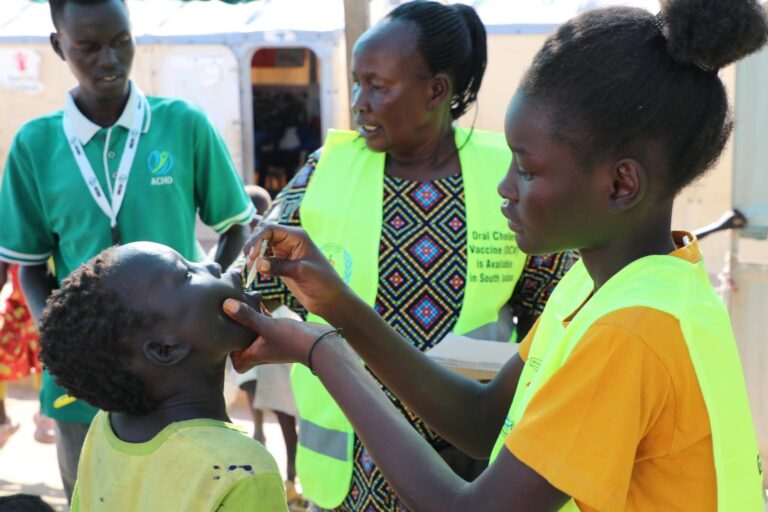South Sudan has intensified its efforts to curb the ongoing cholera outbreak with the support of the World Health Organization (WHO).
The government declared the outbreak in October 2024 and since then around 21,000 suspected and confirmed cases and approximately 367 deaths have been reported as of January 15.
The case fatality ratio currently stands at 1.8 percent, exceeding WHO’s target threshold of less than one percent.
Cholera cases have been reported in 31 out of 80 counties across seven states aone administrative area, with Rubkona county accounting for 47 percent of the total cases, followed by Juba county at around 10 percent.
The influx of refugees and returnees fleeing the conflict in Sudan has exacerbated the situation, increasing the risk of infectious disease outbreaks and putting additional pressure on the fragile health system.
Renk county, the primary entry point for most returnees and refugees from Sudan, has reported around 550 confirmed and suspected cholera cases and three deaths, accounting for almost four percent of the total cases nationwide.
In response to the rising cholera cases, the Ministry of Health, with support from WHO and partners, launched several oral cholera vaccination campaigns in January in four high-risk counties: Malakal, Juba, Renk and Rubkona.
With support from Gavi, the Vaccine Alliance, around four million doses of the vaccine have been approved and approximately 910,000 doses have been administered in the four counties, achieving over 90 percent coverage.
Health Minister Yolanda Awel Deng on Wednesday applauded “healthcare workers on the frontlines who are dedicated to caring for cholera patients and curbing the transmission.”
“The vaccine is lifesaving, and I encourage the community to get vaccinated and adhere to all precautionary measures to minimize the risk of contracting cholera,” she said.
WHO country representative Humphrey Karamagi said his organization continued to distribute essential medical supplies for cholera response to local and national health authorities and partners.
“WHO is supporting health authorities in all aspects of the outbreak response to ensure that we address comprehensive health needs and bring this outbreak to an end,” Karamagi said.
WHO has also facilitated the establishment of a 50-bed cholera treatment centre at Juba Teaching Hospital and is supporting the deployment of nine rapid response teams from the national level to 11 priority counties to assist implementing partners on the ground with critical case management.
JN/APA


